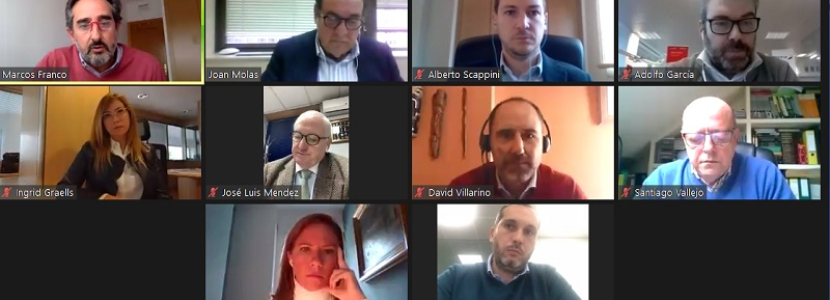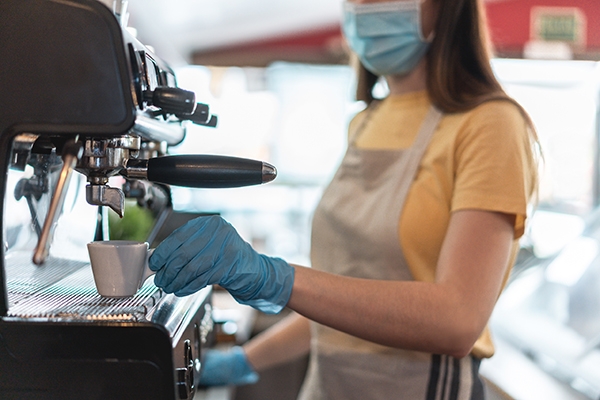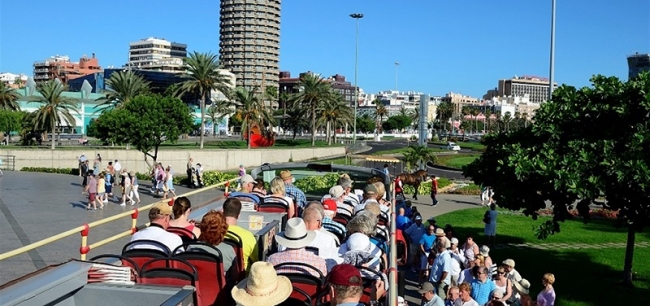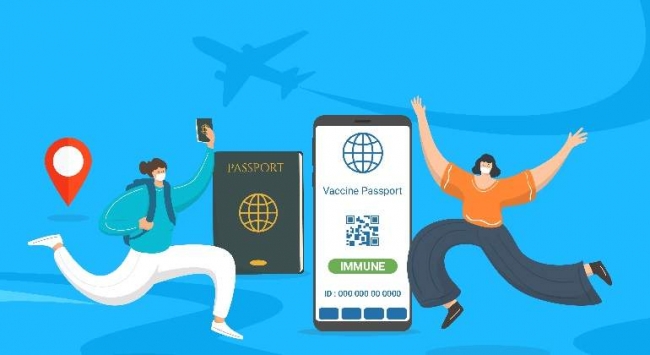
Digitalisation, personalisation and talent will be the keys to recovery, according to Juan Molas
New technologies are going to be fundamental in the recovery of the tourism sector, according to the declarations of various directors meeting in the ObservaTUR Zoom, which set the beginning of the sector's recovery in April. In this new environment, digitalisation, personalisation and talent will be the keys to the sector's recovery.
"We must definitely think about D-day. This will be at the beginning of April. There will be a recovery yes or yes, I have absolute confidence in it. First of all, we have to believe it ourselves, either because there will be a vaccine or because the tests at origin and destination will work," said Juan Molas, President of the Tourism Board.
However, before this date the sector has to prepare itself. To this end, Molas said that "we will have to analyse the world air scene, especially the European one, and how Spain will look after the social, economic and political problems we are experiencing".
"We have to arrive at 1 April prepared. We have a flu in the form of a political, economic and social crisis and that cannot be cured with ibuprofen. It can be cured with direct surgery and this means we must continue to insist that urgent measures are taken, such as more financing, tax reductions and VAT reductions", he said.
He therefore pointed to the urgent need to improve the government's communication policy in international markets, which he described as "abysmal".
In order to arrive prepared for the recovery, Molas indicated that "we must innovate with technological and cutting-edge solutions, otherwise many companies could disappear forever".
"The post-COVID customer will have a different profile, will be more digital and will seek out their trips through prestigious brands and on online platforms with great booking and cancellation facilities. They will book much less in advance and will want to know about all aspects of the trip", he explains.
For Molas, the tourist is undergoing a "radical" transformation and will be a very knowledgeable customer. But he is convinced that travel agencies and tour operators will be "fundamental" for both the national and international markets.
On behalf of ObservaTUR's sponsor companies, David Vidal, commercial director of Amadeus in Spain; Katia Estace, executive director of AON; Ingrid Graells, commercial director of Beroni; David Villarino, general director of Viajes Carrefour; Adolfo García Serrano, senior manager of Iberia for agencies; Santiago Vallejo, general director of Movelia; José Luis Méndez, president of UNAV and Alberto Scappini, business analytics manager of Renfe SNCF participated in the debate. The digital forum was moderated by Marcos Franco, founding partner of ReiniziaT.
Homogenisation of standards
For his part, Santiago Vallejo, considers it necessary "a greater homogenisation of the restrictions - if any - and greater coordination of the countries of Europe and the autonomous communities".
Without this standardisation, "it is not possible to plan a trip because we do not know what is going to happen and it will not be feasible for us to attend to travellers in a professional way and with all the guarantees", he points out.
Therefore, in his opinion, we must "fight tooth and nail to achieve this standardisation".
For his part, David Villarino considers that it is not enough for customers to want to travel again, but that all companies, including travel agencies, of course, "must be prepared and more agile" to respond to these wishes; wishes which, he assures us, must be fulfilled because customers feel "calm" and "safe".
José Luis Méndez has assured that travel agencies are prepared "for the starting gun", although he has not been so optimistic about the dates on D-day, due to all the administration and logistics required and the damage that the pandemic is inflicting on the sector.
From Iberia, Adolfo García pointed out that "they still have a lot of work ahead of them" and expressed his hope for the sector's reactivation as they have perceived that "the moment the restrictions are lifted, the market responds".
Alberto Scappini, for his part, has laid the foundations for the reconstruction of the industry on three pillars. The first of these is the need to gain the confidence of travellers again (either through tests or through the harmonisation of measures). The second is the need to adapt products to the new post-COVID-19 customer, through digitalisation and flexible purchasing. And thirdly, it will be necessary to assess how the economy has been damaged, "as its reactivation will depend on this situation".
As far as travel security is concerned, Katia Estace pointed out that travellers keep their desire to travel intact, but want to do so, she said, "with guarantees". Hence the importance of developing products that provide them with such guarantees at all stages of the journey.
Credits https://www.agenttravel.es/noticia-039789_El-turismo-fija-en-abril-el-inicio-de-la-reactivacion-del-sector.html





